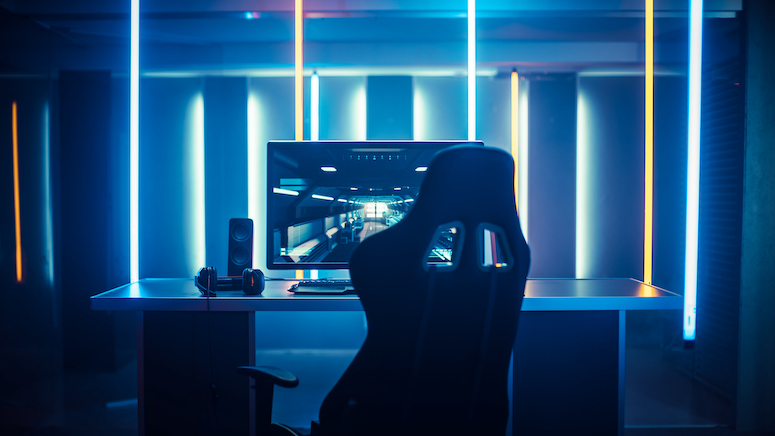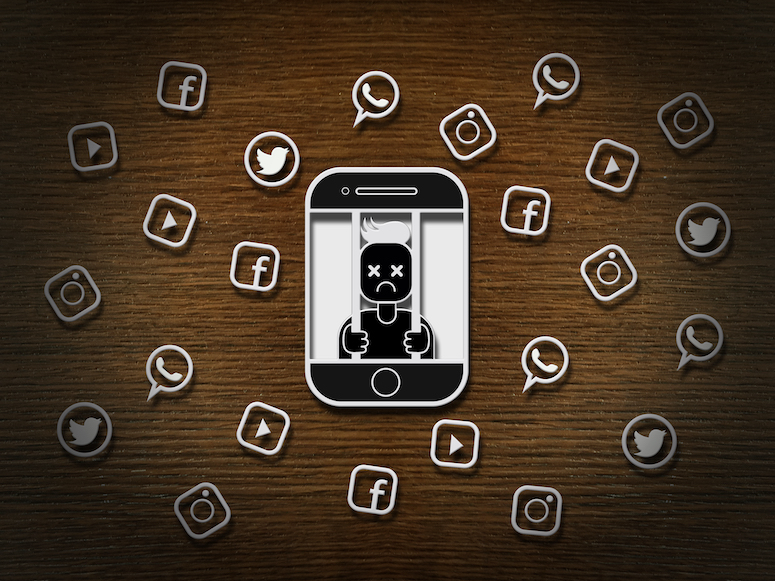The Internet and children: Is legislation the answer?
The timing could not have been more inauspicious.
I was in the middle of beating newsroom deadlines for a number of stories when all of a sudden, my son Lenin suffered a serious case of heart palpitations. His breathing nearly stopped.
At first, we were all at a loss at what to make of it. He was a tall healthy boy in his middle teens, a brilliant young man who was doing well in school (he later graduated cum laude in college where he majored in Animation). He may not have been athletic like most other boys his age, but his body was anything but prone to illness and disease. In fact, it was quite rare for him to catch a cold or the flu during the cold months, which was more than I can say for the rest of our family, including myself.
At a nearby clinic, the doctor asked a number of familiar questions, save one: “How long has he been using the computer?”
I was floored. My son was a serious gamer, and used our home PC more hours than I could possibly ask him to stop. Doctor’s advice: lay off the computer screen for several weeks, and limit the use to an excruciating (well, excruciating to my son) one hour per day.

Shortly after we reached home, my son admitted that he had been playing the whole day, and was emotionally caught up in the game, Need for Speed. Today, my son is still a serious gamer, and writes game guides for foreign gaming content providers. The palpitations never returned all because we’ve kept a close watch on his daily activities.
During the conversation with doctors, I was informed of a spike in cases of palpitations and brain seizures among children due to prolonged computer use. Through years of study and reading up on this subject, I also learned that the varying levels of light coming from cellular phones, computer screens and room lights affect eyesight and can cause migraines, flashing lights in memes and videos seizures, and playing war games a host of disorders.
“Imagine your son, somewhere between 12-15, suffering war shock,” the doctor said. “Games today seem so real that it’s almost impossible to distinguish virtual reality from the real thing.” If a 12-year-old playing Call of Duty (enough to make him a war veteran) doesn’t scare you, I don’t know what will.
This doesn’t yet include trauma stemming from social media bullying, and high levels of anxiety when stalked by strangers. Troll activity, too, is a constant source of tension, leaving the child altogether overwhelmed.
Highly-impressionable and excitable kids face perilous prospects when confronted by online pornography or violence, leaving many with the mistaken impression that these are okay and part of acceptable behavior.
I’m not saying that social media, the internet, or computer games have no redeeming value. I, for one, am a heavy user of social media given the profession I am in. I investigate at times using the “dark web,” or some really sleazy website if only to understand how algorithms work and what makes some websites tick. It’s my journalistic training that makes all the difference.
Children, however, face the dangers of running with information without reflecting on its consequences. This is where the rubber meets the dirt road: how to empower parents to train and guide their kids across social media and the internet platforms without endangering the child’s skill to maturely handle this tool for his or her own good.
Legislating restrictions can, however, be disturbing. Early this month, Laguna Rep. Dan Fernandez refiled the Social Media Regulation and Protection Act of 2019 (House Bill No. 543), a bill that “puts children’s well-being on the top priority.”
Topmost in the legislative agenda is to protect children from whatever inherent dangers are found on social media and the worldwide web. At first glance, imposing age restrictions on users – 13 and below – may seem logical and necessary. Limiting its use – 13- to 17-year-olds for only 30 minutes – may also appear appropriate when weighed against the threats kids face online, including Tourette’s-like syndrome, muscle dysmorphia, to say nothing of sexual exploitation.
The New York Times columnist Yuval Levin said, social media “is no place for kids. If Instagram and TikTok were brick-and-mortar spaces in your neighborhood, you probably would never let even your teenager go to them alone. Parents should have the same say over their children’s presence in these virtual spaces.”

However, I find the legislation’s target – our children – to be largely out of kilter. Imposing restrictions will only drive kids “underground,” leaving their parents in the dark as to their online activities. If by any chance you have children, you know as well as I do that they will find ways to do this, what with the number of parents who couldn’t spare either time, energy and attention for their kids.
Besides, legislating the internet can open a Pandora’s Box of restrictions and controls which, in the future, might include free speech and expression, a law which, in my opinion, should always be opposed. It's the last bastion of free speech, and in a world itching to curb the right to speak truth to power, we have more reasons to stop censorship than blindly encourage it.
Let’s also not kid ourselves more than we have to: with the way legislation is favoring only the rich and powerful, and not the ordinary Filipino, this bill will only be an annoying, unwelcome addition to the laws on, say, graft and corruption, that most powerful people choose to disregard openly and without remorse. Perhaps, being a good example to our children should come first before expecting any of them to follow the darn rules.

What I do propose is this: a call for parents to participate in a nationwide training on both the pros and cons of internet and social media usage, and how to deal with children’s insistence on using these tools. Science has a ton of things to say about these things. Government can start by funding online seminars.
Knowing what is right and wrong begins at home. The internet is a tool and quite a necessary tool when children reach a certain age. The worldwide web will be part of that world. Restricting them doesn’t bode well for whatever skill is necessary in living in that future, the same skill needed so they can navigate it responsibly and with utmost care.
It all starts when children learn principles and values they can carry with them online. Restrict children all you want, but if their training at home is far from agreeable and lacks consistency, worse, dispensing with the principles needed so they can be good citizens, then you will only be unleashing generations of young folks who cannot tell between their right hand from their left.
Our children’s future is radically bound to social media and the internet. No running away from that fact. It is home training, not legislative restriction, that will prove wiser in the long haul.


